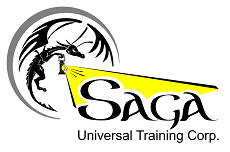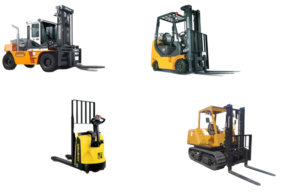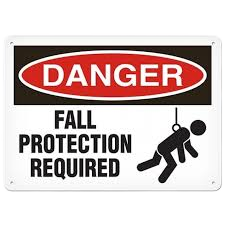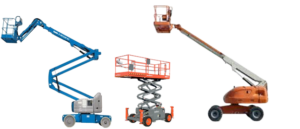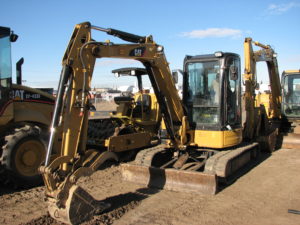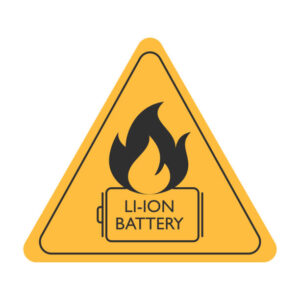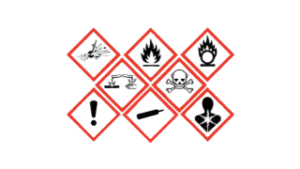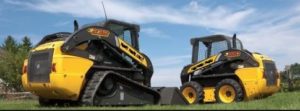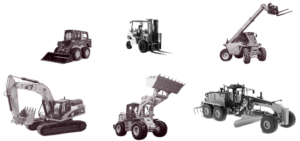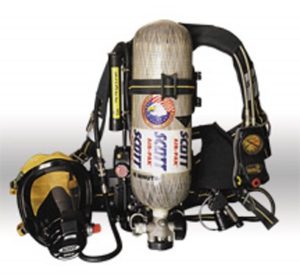For more information on how to navigate the site, purchase and take course, click “Here” for all our How to’s.
Lift Trucks – New Brunswick
This course follows the guidelines, principles and recommendations established by:
Canadian Standards Association, The Canadian Centre for Occupational Health and Safety (CCOHS).
It was developed to supplement employer Powered Mobile Equipment (PME) operator training programs.
Lift Trucks – Nova Scotia
This course is intended for lift truck (forklift) operators. It provides the minimum training requirements to ensure operators have the basic knowledge and skills required for the safe operation of their lift truck and its attachments. It is a full, comprehensive knowledge course, not an awareness course. The blended, online portion will take approximately 3 hours to complete. After completing the online portion, the CSA standard requires an operator complete a basic skills assessment for the equipment they operate.
Fall Protection – Nova Scotia
This course is intended for those working from height outside the platform of a Mobile Elevating Work Platform. It is a full, comprehensive knowledge course, not an awareness course. The blended, online portion will take approximately 3.5 hours to complete. It is recommended that a basic skills assessment donning a harness be completed afterwards.
Fall Protection – New Brunswick
This course is intended for those working from height outside the platform of a Mobile Elevating Work Platform. It is a full, comprehensive knowledge course, not an awareness course. The blended, online portion will take approximately 3.5 hours to complete. It is recommended that a basic skills assessment donning a harness be completed afterwards.
Mobile Elevating Work Platforms – New Brunswick
This course follows the Occupational Health and Safety Act, Regulations and Code and takes into consideration the guidelines and principles of the Canadian Centre for Occupational Health and Safety (CCOHS). The course provides the minimum requirements for the training of operators for Mobile Elevating Work Platforms (MEWPs).
Basic Crane and Rigging – Saskatchewan
This course is designed to introduce the learner to the basic concepts, hazards, hazard control processes and safe work procedures associated with operating cranes.
Basic Crane and Rigging – Newfoundland and Labrador
This course is designed to introduce the learner to the basic concepts, hazards, hazard control processes and safe work procedures associated with operating cranes.
Excavator – Prince Edward Island
This course follows the guidelines and principles outlined in Prince Edward Island's Occupational Health and Safety Code as well as those established by the Canadian Standards Association and recommendations by the Canadian Centre for Occupational Health and Safety (CCOHS).
Fall Protection – Prince Edward Island
This course is designed to introduce the learner to the basic concepts, hazards, hazard control processes and safe work procedures associated with working at height. It follows the regulations, guidelines, principles and recommendations established by the Prince Edward Island Occupational Health and Safety Act, Regulations and Code.
Safe Storage, Handling, and Transportation of Lithium Batteries – Prince Edward Island
This course follows Occupational Health and Safety Acts, Regulations, and Code and takes into consideration the guidelines and principles of the Canadian Centre for Occupational Health and Safety (CCOHS) and is intended to supplement a company’s larger Health & Safety Management System.
Detection and Control of Hazardous Materials – Prince Edward Island
Introduction to the Detection and Control of Hazardous Materials. This training follows the guidelines, principles and recommendations established by common Occupational Health and Safety legislation and industry established and accepted safety standards.
This course is intended to supplement employer training programs
Skid Steer and Compact Track Loader – Prince Edward Island
At the end of this course the student should be familiar with different types of these machines, their basic structural components, basic function, potential hazards while operating these machines and how to control those hazards. The student should also have a basic understanding of the proper use of attachments and potential hazards associated with attachments.
Skid Steer and Compact Track Loader – Nova Scotia
At the end of this course the student should be familiar with different types of these machines, their basic structural components, basic function, potential hazards while operating these machines and how to control those hazards. The student should also have a basic understanding of the proper use of attachments and potential hazards associated with attachments.
Skid Steer and Compact Track Loader – Newfoundland and Labrador
At the end of this course the student should be familiar with different types of these machines, their basic structural components, basic function, potential hazards while operating these machines and how to control those hazards. The student should also have a basic understanding of the proper use of attachments and potential hazards associated with attachments.
Powered Mobile Equipment Operator – Newfoundland and Labrador
The goal of this program is to ensure operators have the basic knowledge and skills required for the safe operation of their equipment and its attachments, including: Front End Loader, Skid Steer Loader, Lift Truck, Variable Reach Lift Truck, Excavator, Motor Grader and Bulldozer.
Excavator – Newfoundland and Labrador
This course follows the guidelines and principles outlined the Newfoundland and Labrador Occupational Health and Safety Code as well as those established by the Canadian Standards Association and recommendations by the Canadian Centre for Occupational Health and Safety (CCOHS).
Self Contained Breathing Apparatus – Prince Edward Island
Protective breathing apparatus is extremely crucial to the wellbeing of any worker who may be exposed to a hazardous environment.
Failure to use this equipment could lead to unsuccessful rescue attempts, injuries and/or fatalities.
Safe Storage, Handling, and Transportation of Lithium Batteries – Newfoundland and Labrador
This course follows the Newfoundland and Labrador Occupational Health and Safety Act, Regulations, and Code and takes into consideration the guidelines and principles of the Canadian Centre for Occupational Health and Safety (CCOHS) and is intended to supplement a company’s larger Health & Safety Management System.
Excavator – Nova Scotia
This course follows the guidelines and principles of Nova Scotia Occupational Health and Safety Code as well as those established by the Canadian Standards Association and recommendations by the Canadian Centre for Occupational Health and Safety (CCOHS).
Excavator – New Brunswick
This course follows the guidelines and principles of New Brunswick Occupational Health and Safety Code as well as those established by the Canadian Standards Association
